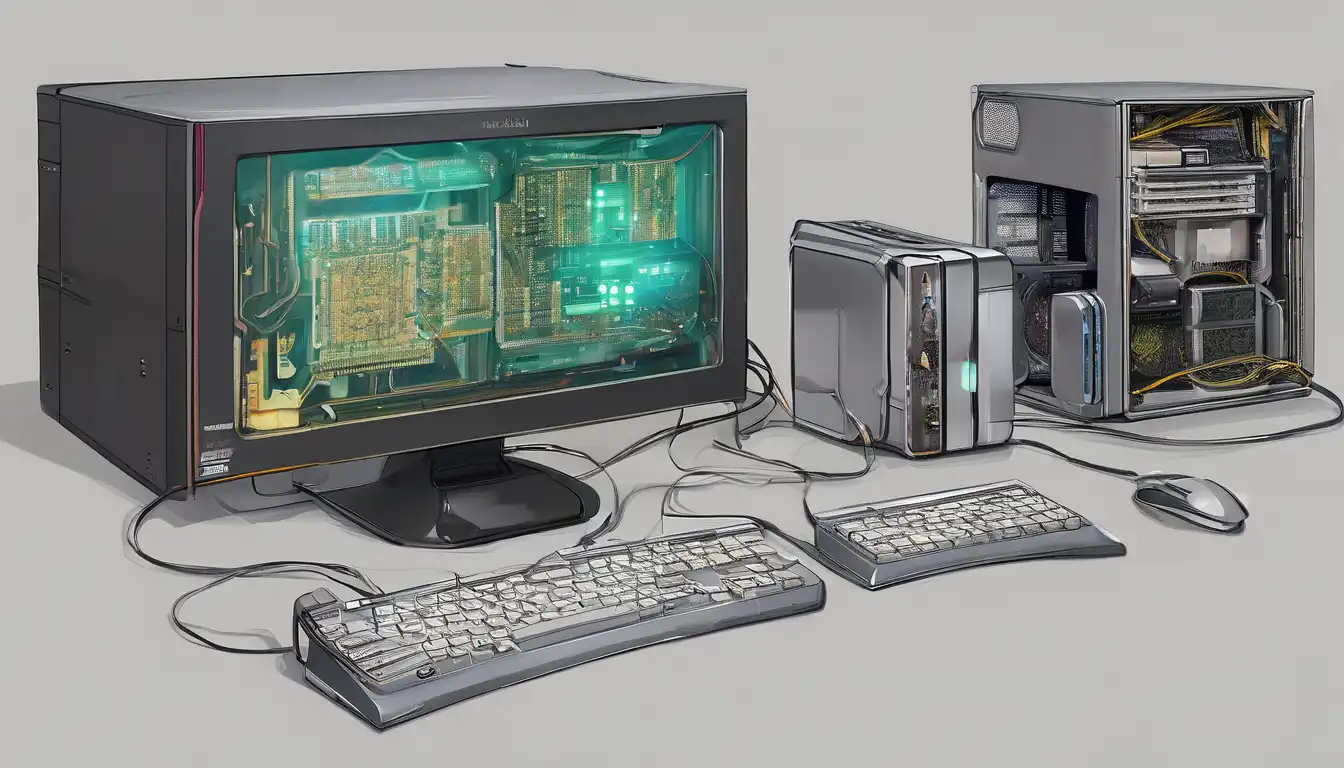Revolutionary Advances in Computer Hardware Technology
The landscape of computer hardware technology is undergoing unprecedented transformation, with innovations emerging at an astonishing pace. From quantum computing breakthroughs to AI-optimized processors, the latest developments are reshaping how we interact with technology. These advancements promise to deliver unprecedented performance, efficiency, and capabilities that were once confined to science fiction.
Next-Generation Processor Technology
The heart of modern computing continues to evolve with remarkable speed. Chip manufacturers are pushing the boundaries of what's possible with new architectures and manufacturing processes. The latest processors feature:
- 3D stacking technology that increases transistor density
- AI-accelerated computing capabilities
- Enhanced power efficiency for longer battery life
- Integrated security features at the hardware level
These innovations are particularly evident in the latest generation of CPUs from leading manufacturers. The shift to smaller nanometer processes has enabled more transistors per chip, resulting in significant performance gains while reducing power consumption. For those interested in building high-performance systems, understanding these processor advancements is crucial for making informed decisions about computer hardware components.
Graphics Processing Unit Revolution
GPUs have transcended their traditional role in gaming to become essential components for AI, machine learning, and scientific computing. The latest graphics cards feature:
- Real-time ray tracing capabilities
- AI-powered upscaling technology
- Massive VRAM configurations for complex workloads
- Advanced cooling solutions for sustained performance
These advancements are transforming industries beyond gaming, enabling breakthroughs in medical imaging, autonomous vehicle development, and creative content production. The integration of specialized AI cores within modern GPUs allows for accelerated machine learning tasks that were previously impractical on consumer hardware.
Memory and Storage Innovations
The storage and memory sectors are witnessing revolutionary changes that address the growing demands of modern applications. Key developments include:
- PCIe 5.0 SSDs with blistering transfer speeds
- DDR5 memory with improved bandwidth and efficiency
- 3D XPoint technology for persistent memory solutions
- QLC NAND flash for high-capacity storage at lower costs
These storage innovations are particularly impactful for professionals working with large datasets, video editors handling 8K footage, and gamers seeking reduced loading times. The transition to newer memory standards represents a significant leap forward in system responsiveness and overall performance. When considering upgrades, it's essential to understand how these memory technologies complement other computer hardware components.
Quantum Computing Breakthroughs
While still in its relative infancy for consumer applications, quantum computing represents the frontier of hardware innovation. Recent developments include:
- Increased qubit stability and coherence times
- Error correction techniques improving computational accuracy
- Hybrid quantum-classical computing approaches
- Cloud-accessible quantum processing units
These advancements are paving the way for solving complex problems in cryptography, drug discovery, and optimization that are beyond the capabilities of classical computers. The progress in quantum hardware suggests that practical applications may arrive sooner than previously anticipated.
Cooling and Thermal Management
As components become more powerful, effective thermal management has become increasingly critical. Modern cooling solutions include:
- Advanced liquid cooling systems with smart controls
- Phase-change cooling technology for extreme overclocking
- Graphene-based thermal interface materials
- AI-optimized fan curves and cooling profiles
These innovations ensure that high-performance components can maintain optimal temperatures under heavy loads, preventing thermal throttling and extending hardware lifespan. Proper cooling is essential for maximizing the potential of modern computer hardware, especially in demanding applications like gaming and content creation.
Connectivity and Peripheral Advances
The latest hardware innovations extend beyond core components to include cutting-edge connectivity solutions:
- Wi-Fi 7 technology for multi-gigabit wireless speeds
- Thunderbolt 4 and USB4 for universal connectivity
- High-refresh-rate monitors with advanced panel technologies
- Haptic feedback and adaptive trigger technologies in gaming peripherals
These advancements create more seamless and immersive computing experiences, whether for productivity, creativity, or entertainment. The integration of these technologies demonstrates how computer hardware innovation encompasses the entire ecosystem of devices and connections.
Sustainability in Hardware Design
An increasingly important aspect of modern hardware innovation is sustainability. Manufacturers are focusing on:
- Energy-efficient component designs
- Recyclable materials and reduced packaging
- Modular designs for easier upgrades and repairs
- Extended product lifecycles through firmware updates
These environmentally conscious approaches not only reduce electronic waste but also provide long-term value for consumers. The emphasis on sustainability represents a positive shift in how the industry approaches computer hardware development and manufacturing.
The Future of Hardware Technology
Looking ahead, several emerging technologies promise to further revolutionize computer hardware:
- Neuromorphic computing inspired by biological neural networks
- Optical computing using light instead of electricity
- DNA-based data storage for unprecedented density
- Self-healing materials for increased hardware durability
These futuristic concepts, combined with ongoing refinements of existing technologies, suggest that the pace of innovation will continue to accelerate. Staying informed about these developments is essential for anyone interested in the future of computing and technology.
The rapid evolution of computer hardware technology demonstrates the industry's commitment to pushing boundaries and delivering increasingly powerful, efficient, and capable systems. As these innovations mature and become more accessible, they will continue to transform how we work, create, and interact with digital technology.
